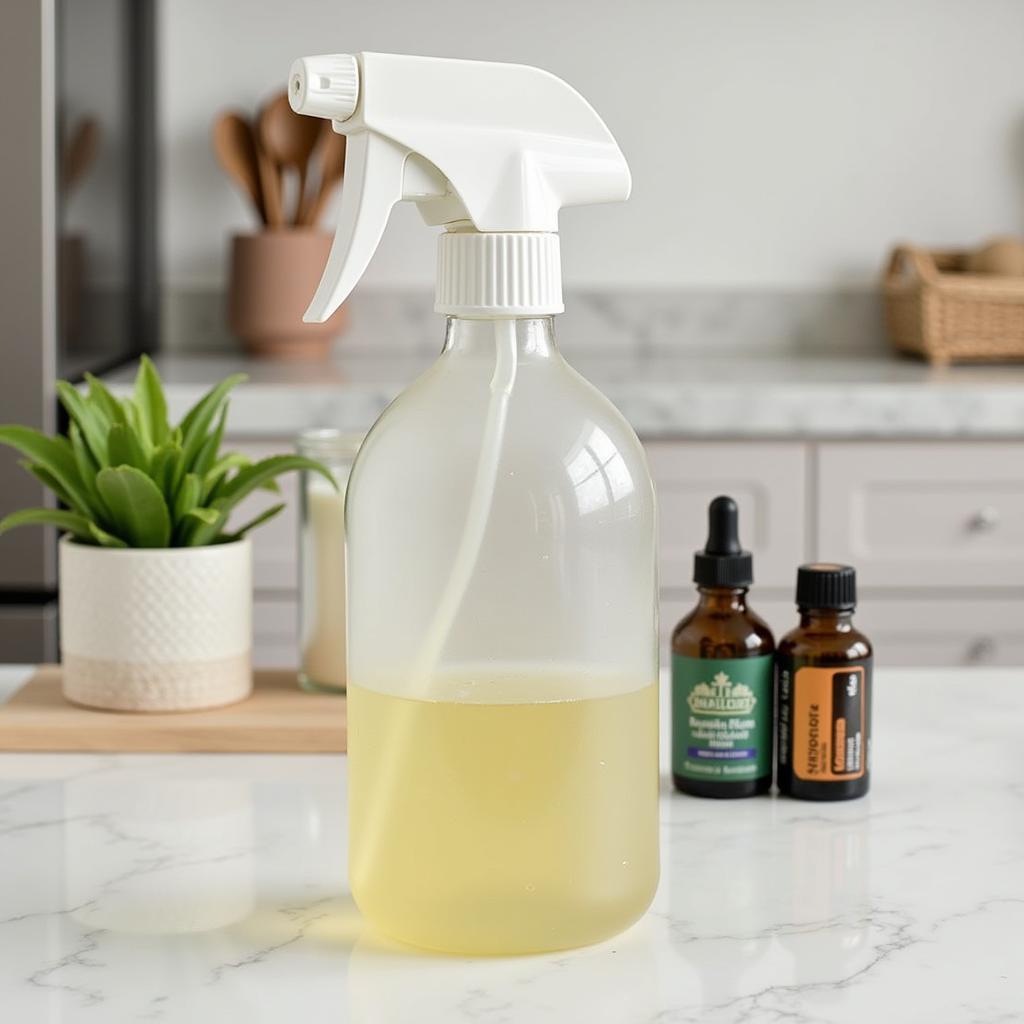Have you ever encountered creepy crawlies lurking near your cat’s litter box? You’re not alone! “Litter Box Bugs” is a common concern for cat owners. These tiny intruders can range from harmless nuisance to potential health hazards. This comprehensive guide will delve into the world of litter box bugs, helping you identify, eliminate, and prevent them from making your home their own.
Decoding the Litter Box Ecosystem: Why Bugs Love It
A cat’s litter box, while essential for their hygiene, can inadvertently attract various bugs. Here’s why:
- Food Source: Cat feces and leftover food bits offer a feast for certain insects, making the litter box a prime target.
- Warmth and Humidity: The moist, warm environment created by cat litter provides ideal breeding grounds for many bugs.
- Shelter: The dark, secluded nature of a litter box offers a safe haven for insects seeking shelter.
Unmasking the Culprits: Common Litter Box Bugs
Identifying the specific type of bug invading your cat’s litter box is crucial for effective extermination. Here are some common suspects:
- Flies: House flies and fruit flies are attracted to the odor of cat waste.
- Ants: These resourceful insects are drawn to the protein and fat in cat feces.
- Cockroaches: Litter boxes can offer cockroaches a source of food, water, and a place to lay eggs.
- Litter Mites: These microscopic creatures thrive in warm, humid environments and feed on organic matter in the litter.
Signs of a Litter Box Bug Infestation
- Visible Bugs: This is the most obvious sign, indicating a potential infestation that needs immediate attention.
- Unusual Odors: A strong, unpleasant smell emanating from the litter box, even after cleaning, can signal bug activity.
- Cat Scratching: Excessive scratching around the litter box area, beyond normal digging behavior, might indicate bug bites or irritation.
- Allergic Reactions: If you experience unexplained allergy symptoms, such as sneezing or itchy eyes, litter box bugs could be the culprit.
Tackling the Infestation: Effective Elimination Strategies
Dealing with a litter box bug infestation requires a multi-pronged approach:
1. Deep Clean and Disinfect
- Empty the litter box completely and dispose of the old litter properly.
- Scrub the litter box thoroughly with hot, soapy water, paying attention to corners and crevices.
- Disinfect the box using a pet-safe disinfectant or a solution of water and white vinegar.
- Allow the box to dry completely before adding fresh litter.
2. Choose the Right Litter
- Opt for low-dust, fragrance-free litter options, as these are less likely to attract bugs.
- Consider litter types like pine, silica gel, or recycled paper, which are naturally less hospitable to insects.
3. Maintain Litter Box Hygiene
- Scoop the litter box at least once a day, removing all feces and urine clumps.
- Completely replace the litter and clean the box according to the manufacturer’s instructions and the type of litter used.
- Place the litter box in a well-ventilated area to reduce moisture buildup.
4. Natural Repellents
- Sprinkle diatomaceous earth around the litter box. This natural powder dehydrates insects, effectively killing them.
- Place cedar chips or cotton balls soaked in essential oils like peppermint, tea tree, or lavender near the litter box. These scents can deter bugs.
5. Professional Pest Control
- If DIY methods fail to eliminate the infestation, or if you suspect a severe problem, consult a professional pest control service. They have the expertise and tools to handle the situation effectively.
Preventing Future Infestations: Proactive Measures
Prevention is key to keeping litter box bugs at bay:
- Regular Cleaning: Maintain a consistent cleaning schedule for the litter box.
- Store Litter Properly: Keep litter in airtight containers to prevent bugs from accessing it.
- Food and Water Bowls: Clean your cat’s food and water bowls regularly and avoid leaving food out overnight.
- Seal Entry Points: Check for cracks and crevices around windows, doors, and walls, and seal them to prevent bugs from entering your home.
- Regular Home Cleaning: Maintain overall cleanliness in your home, especially in areas where your cat eats and plays.
 Essential Oil Bug Repellent Spray
Essential Oil Bug Repellent Spray
Conclusion
Litter box bugs can be a nuisance, but with the right knowledge and strategies, you can effectively eliminate and prevent them from taking over your cat’s space. By following the steps outlined in this guide, you can ensure a clean, hygienic environment for both you and your feline companion.
Remember, a little vigilance goes a long way in maintaining a bug-free litter box and a happy, healthy cat.
Frequently Asked Questions
1. Can litter box bugs harm my cat?
While most litter box bugs are more of a nuisance, some, like fleas and mites, can bite your cat, causing skin irritation and potentially transmitting diseases.
2. Is it safe to use insecticides around my cat’s litter box?
Many insecticides are toxic to cats. Always choose pet-safe options or consult with your veterinarian before using any chemical treatments near your cat.
3. Can I use bleach to clean my cat’s litter box?
Bleach is not recommended for cleaning litter boxes. The strong odor can deter your cat from using the box, and the fumes can be harmful if ingested.
4. How often should I replace my cat’s litter box?
It’s recommended to replace your cat’s litter box every 6-12 months, or sooner if it becomes cracked, scratched, or difficult to clean properly.
5. What should I do if I suspect my cat has fleas from the litter box?
Consult your veterinarian immediately. They can recommend appropriate flea treatment for your cat and advise you on how to eliminate fleas from your home effectively.
For further assistance, please contact us:
Phone Number: 0902476650
Email: [email protected]
Address: 139 Đ. Võ Văn Kiệt, Hoà Long, Bà Rịa, Bà Rịa – Vũng Tàu, Việt Nam.
Our customer support team is available 24/7 to assist you.





